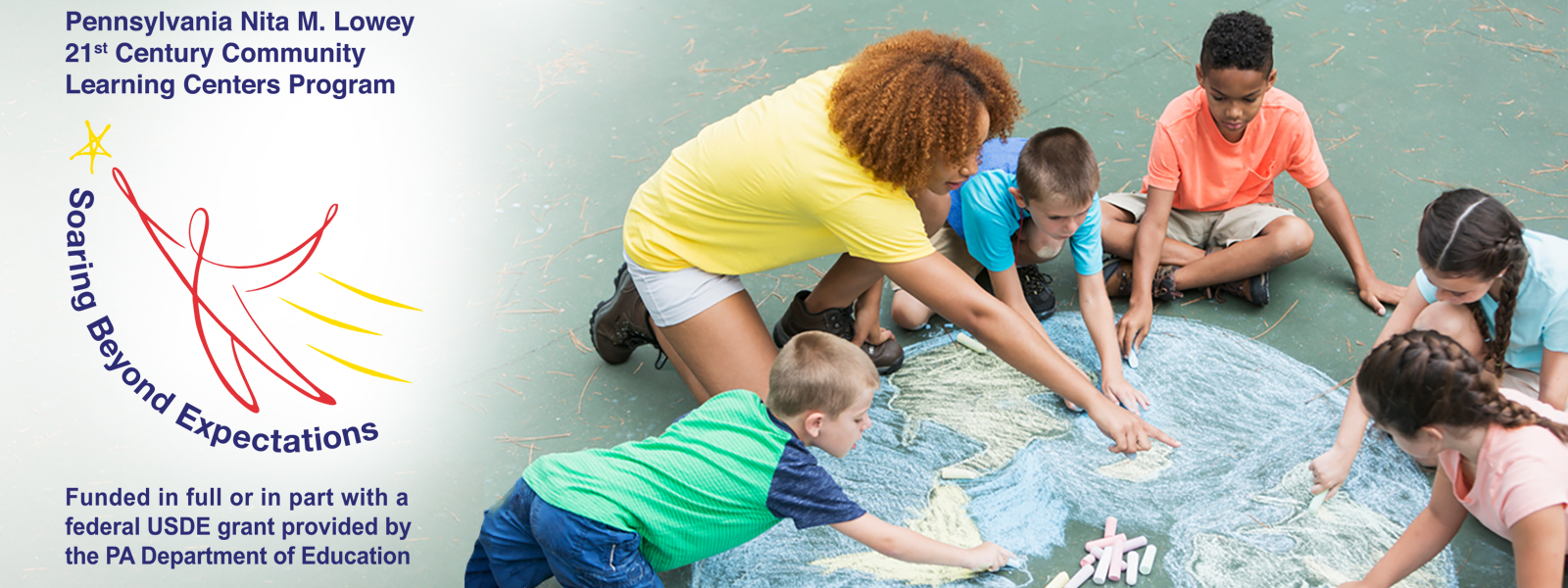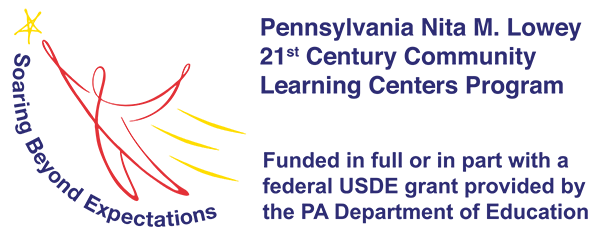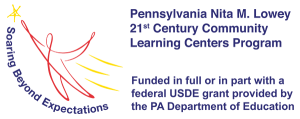
Nita M. Lowey 21st Century Community Learning Centers (21st CCLC) provides federal funding for the establishment of community learning centers that provide academic, artistic and cultural enrichment opportunities for children, particularly students who attend high-poverty and low-performing schools, to meet state and local standards in core academic subjects such as reading, math, and science. This program is also intended to offer students an array of activities and to include families and the community in the educational process.
The 21st CCLC program is authorized under Title IV, Part B of the Elementary and Secondary Education Act, as amended by the No Child Left Behind Act of 2001 and reauthorized by the Every Student Succeeds Act (ESSA) of 2015.
Program Goals
Assist youth in meeting state standards for core academic subjects by providing students with academic enrichment opportunities before school, after school and during holidays or summer recess.
Offer participants a broad array of other services and programs, such as art, music, recreation activities, character education, career and technical training, drug and violence prevention programming, and technology education.
Provide educational services for families of participating students, such as literacy instruction, computer training and/or cultural enrichment.
Ensure that both youth and their families have decision-making roles in the creation, operation and evaluation of every 21st CCLC in Pennsylvania.
Mobilize school, community, and private sector social and health services support and resources in order to remove barriers that impede students’ learning.
21st CCLC Draft Non-Regulatory Guidance (May 2023)
This guidance supersedes the U.S. Department of Education’s (Department’s) guidance entitled 21st Century Community Learning Centers, Non-Regulatory Guidance: February 2003. This guidance addresses services to eligible children, youth, and their families under the 21st CCLC program and is intended to be used in conjunction with the applicable statute and regulations including the Education Department General Administrative Requirements (EDGAR) and the Uniform Administrative Requirements, Cost Principles, and Audit Requirements for Federal Awards (Uniform Guidance), 2 C.F.R. Part 200.
Download the 21st CCLC Draft Non-Regulatory Guidance (May 2023) (PDF)
Download the 21st CCLC Non-regulatory Guidance Crosswalk Guidance 2003-2023 for the Subgrantee
Apply for a 21st CCLC Grant
The 21st CCLC grant is a competitive grant that provides federal funding to establish community learning centers that provide academic, artistic, and cultural enrichment opportunities for students and their families. These opportunities must occur during non-school hours or periods when school is not in session. Opportunities must help students attending high-poverty and low-performing schools meet state and local standards in core academic subjects. Centers must also offer students an array of activities that can complement their regular academic programs, literacy, and other educational services to their families.
Visit the Pennsylvania Department of Education’s 21st CCLC grant webpage for more information and how to apply instructions. For answers to the most frequently asked questions, visit their FAQ webpage.
Monitoring
A Pennsylvania 21st CCLC subgrantee is monitored at least one time during the first three years of the grant period. The contracted monitor from the Pennsylvania Department of Education will communicate about the monitoring visit. Required documentation, including the Itinerary Guide and Volunteer Staff Clearance and Certifications form, are to be completed and returned to the monitor prior to the scheduled visit.
To access all monitoring-related documents, please visit the AIU website and select the plus (+) for PA 21st Century Community Learning Centers.
Center for Schools and Communities (CSC) contracts with the Pennsylvania Department of Education to provide training and technical assistance to Pennsylvania Nita M. Lowey 21st Century Community Learning Centers. CSC employs a diverse and well-qualified staff to respond to requests for training and technical assistance relating specifically to the following topics pertaining to afterschool and youth development.
- Quality Programming
- Community and Family Engagement
- Program Management and Administration
- Professional Development Training

